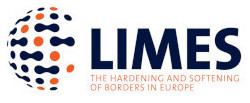Study and Work Experiences across the Border: their Impact on Cross-border Careers
Research Focus and Methodology
Imagine a young ambitious woman, Oumaima. She has a master’s degree from the International University of Rabat and would like to work in her field of study in Belgium. Some fields, such as nursing or architecture, require a formal recognition in order to be able to practice the profession. For other fields, recognition is not mandatory, but it can serve as a signal for employers unfamiliar with foreign educational systems. There still is limited empirical evidence to what extent Oumaima, and people with similar aspirations, can actually profit from getting their qualification recognized. That question is at the heart of Saena’s dissertation: she uses novel administrative data to assess when and why recognition of foreign qualifications can be relevant in the cross-border labour market careers of migrants. She aims at contributing to a better understanding of the complex processes migrants experience in getting their elsewhere acquired human capital valued on the local labour market. She also studies the power dynamics behind the labour market institution of diploma recognition.
Relation to Borders
The topic of foreign qualification recognition can play a role in crossing various types of borders in a migrant’s labour market career. On the one hand, accessing a European country for labour market purposes for non-EU migrants usually requires a job offer as part of visa requirements. Getting a qualification recognised can therefore be an indispensable step to cross national borders. It can also help local employers understand foreign qualifications and therefore facilitate securing a job offer in the destination country. On the other hand, foreign qualification recognition can also be vital in crossing borders on the labour market, such as gaining access to regulated occupations.
Findings and Takeaways
Using public employment service data, Saena found that recognition does in fact increase the probability of finding a job, for certain groups of non-EU migrants. In another paper, she looks at the extent to which the relaxation of foreign qualification requirements for non-EU migrants facilitates migration to Germany. To explore this, Saena has used data from the Institute for Employment Research (IAB) in Nurnberg, Germany, where she spent six months during her secondment. In other papers, she has used Belgian administrative data to understand what mechanisms are behind the labour market effects of foreign qualification recognition. In her research, Saena collaborates closely with policy actors who are involved in practical aspects of recognition policies in the labour market.
Researcher: Saena Chakkar (see profile)
Supervisors: Frank Cörvers, Wendy Smits, Adrian Lerche (see profiles)
